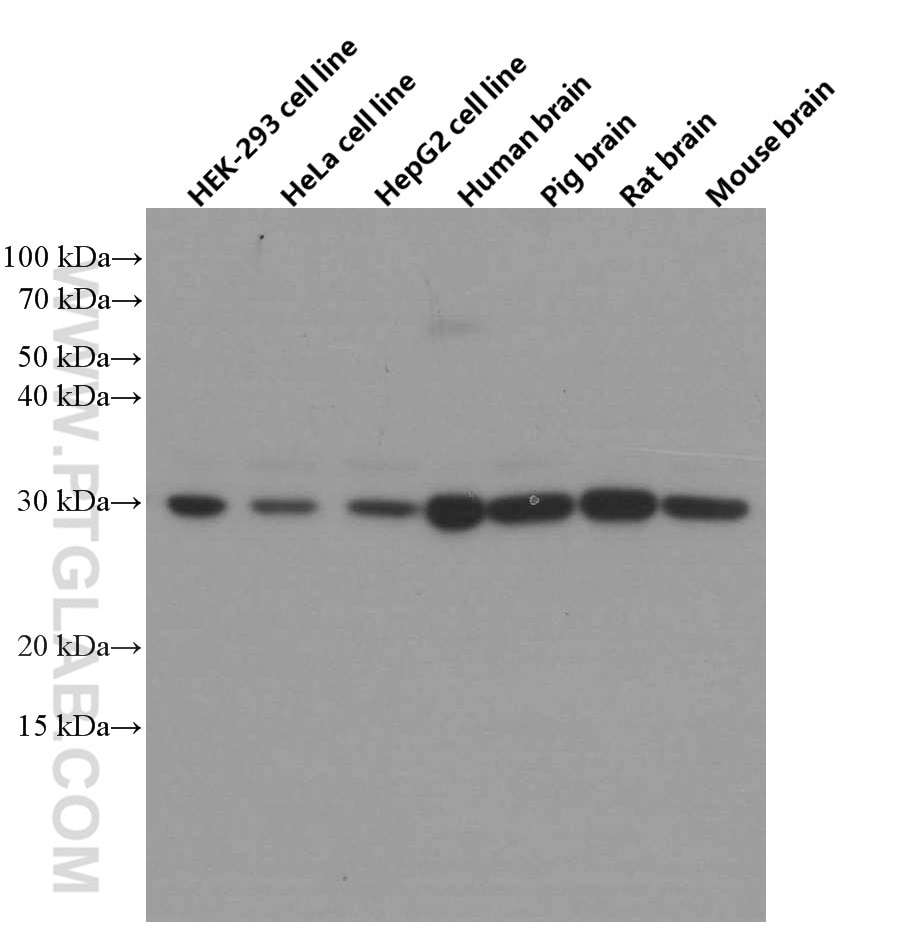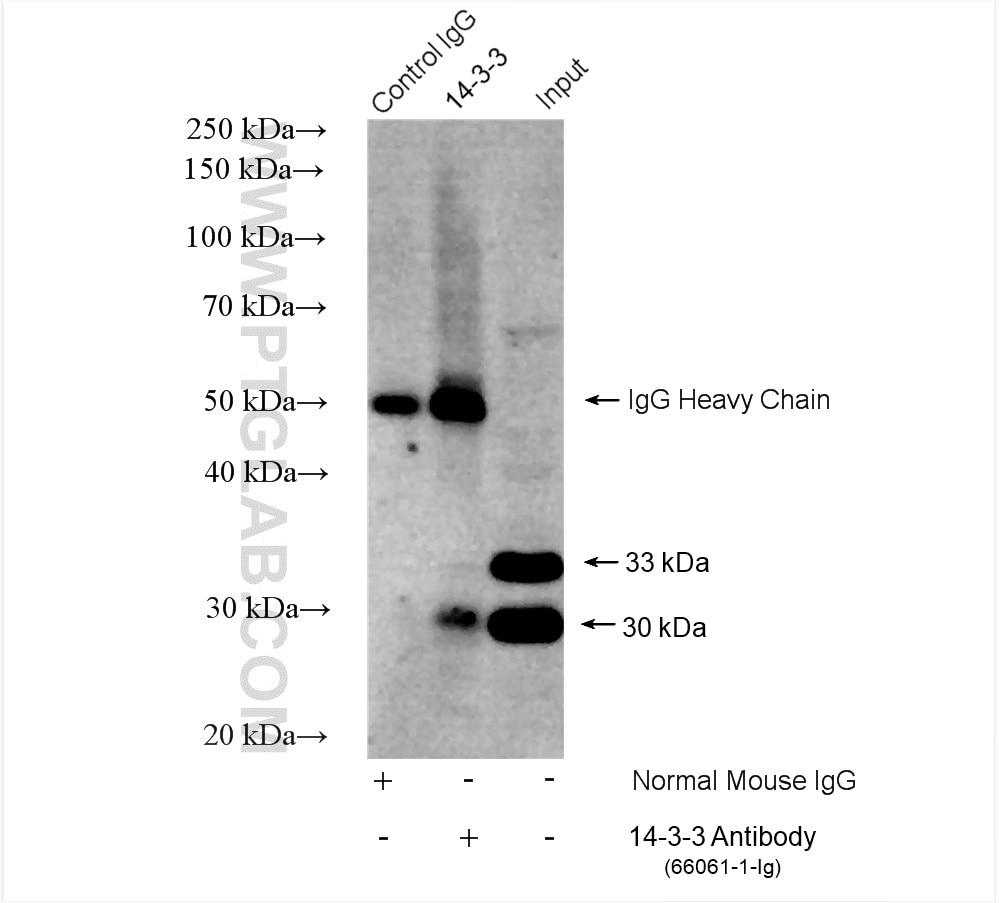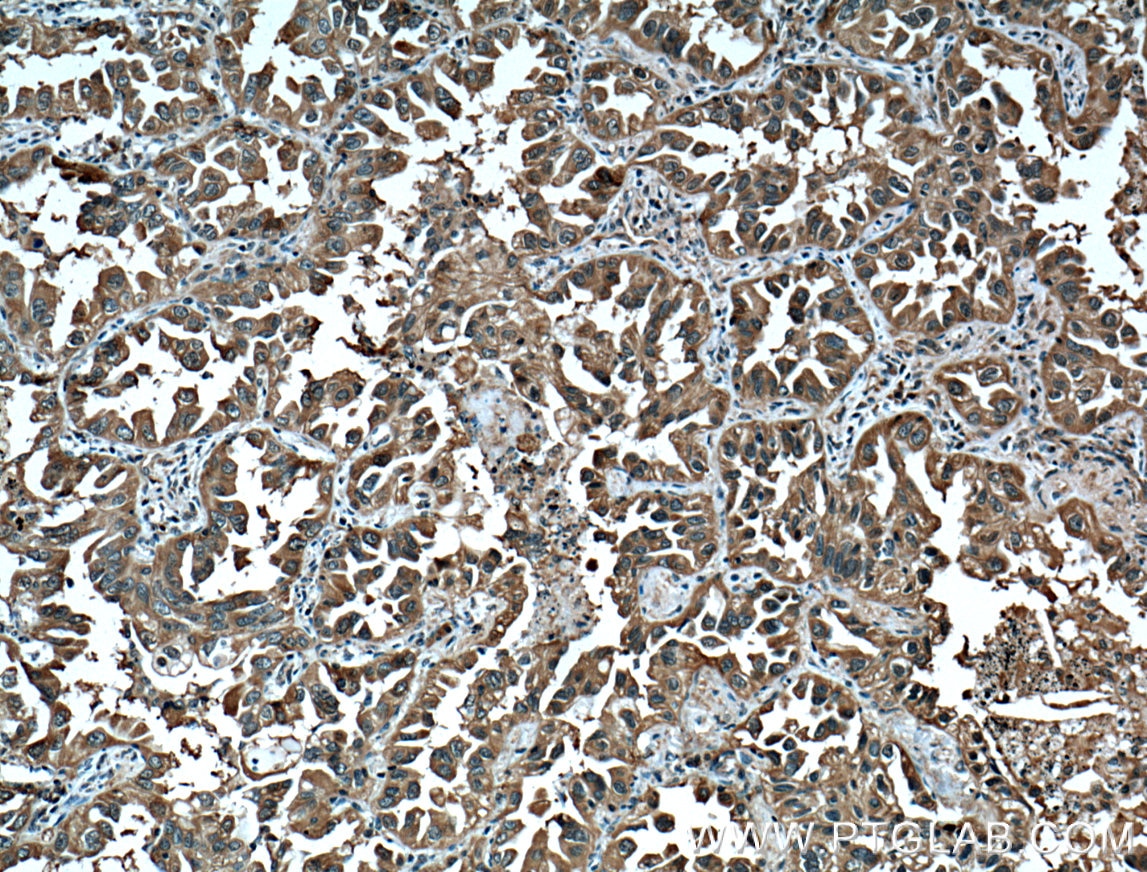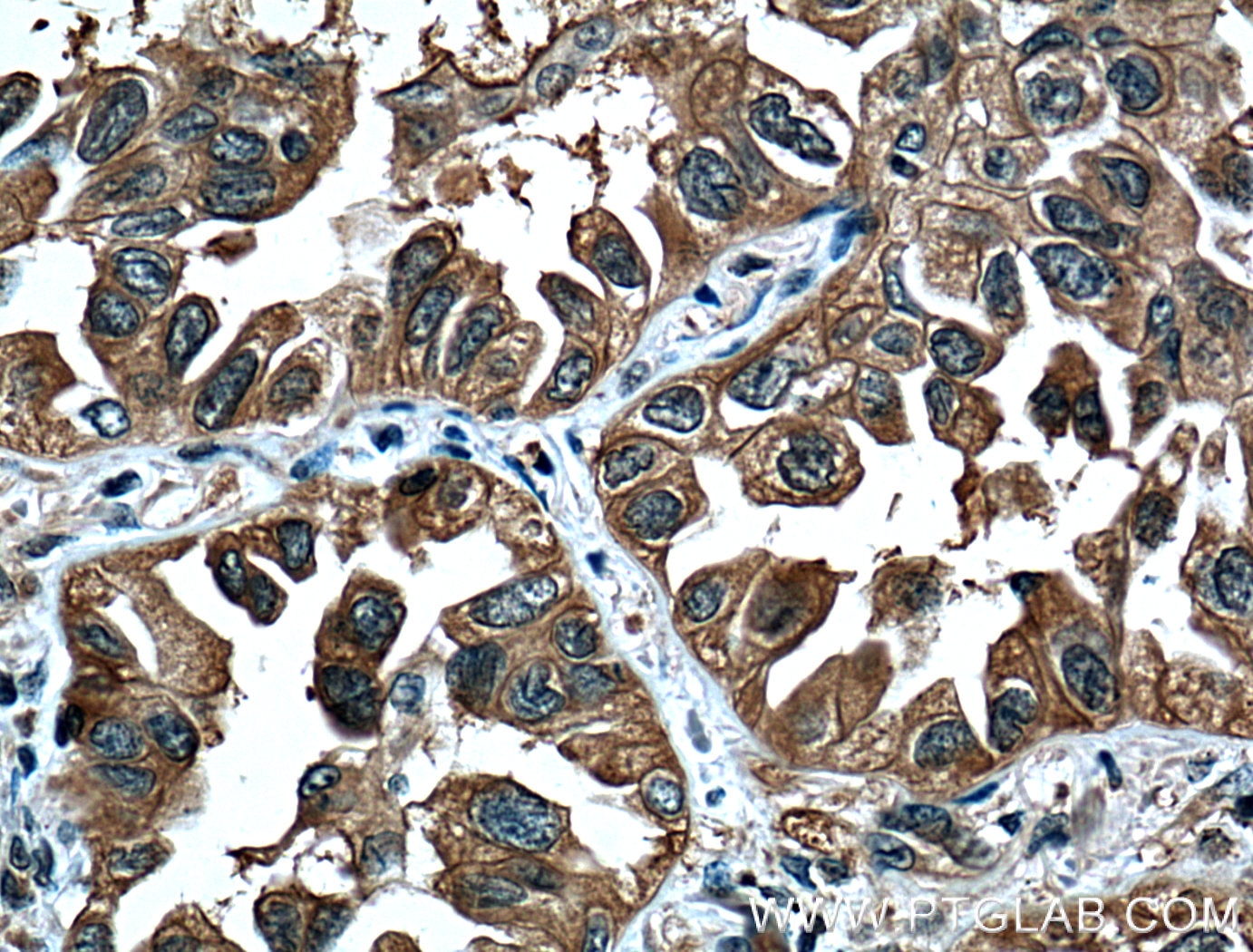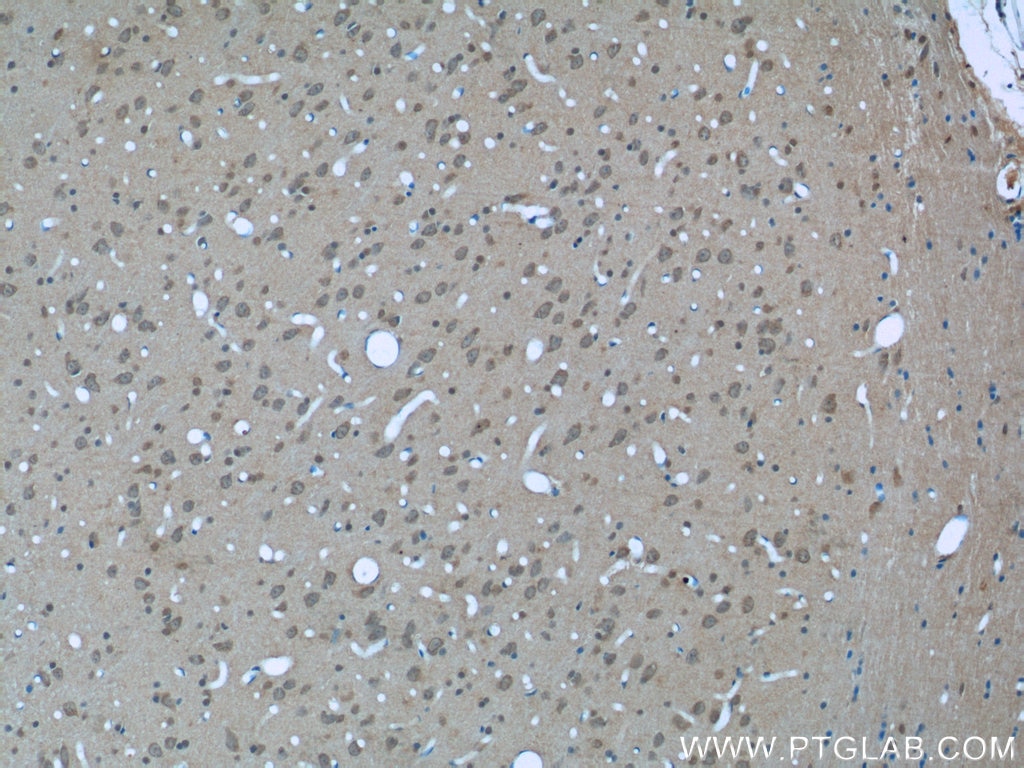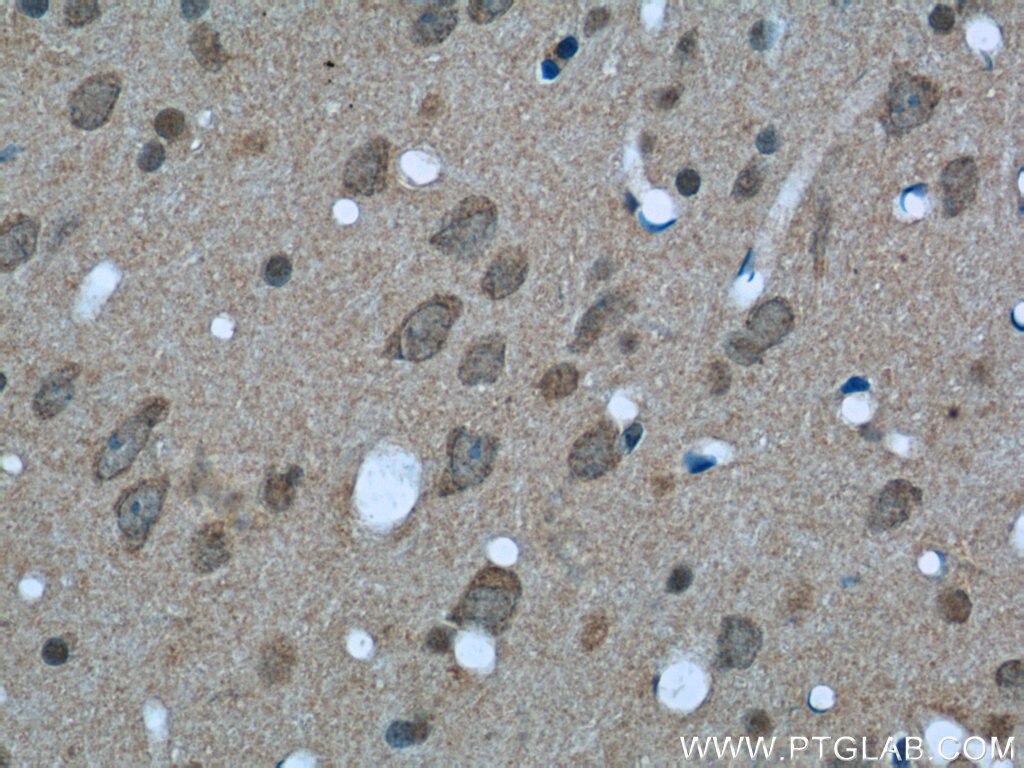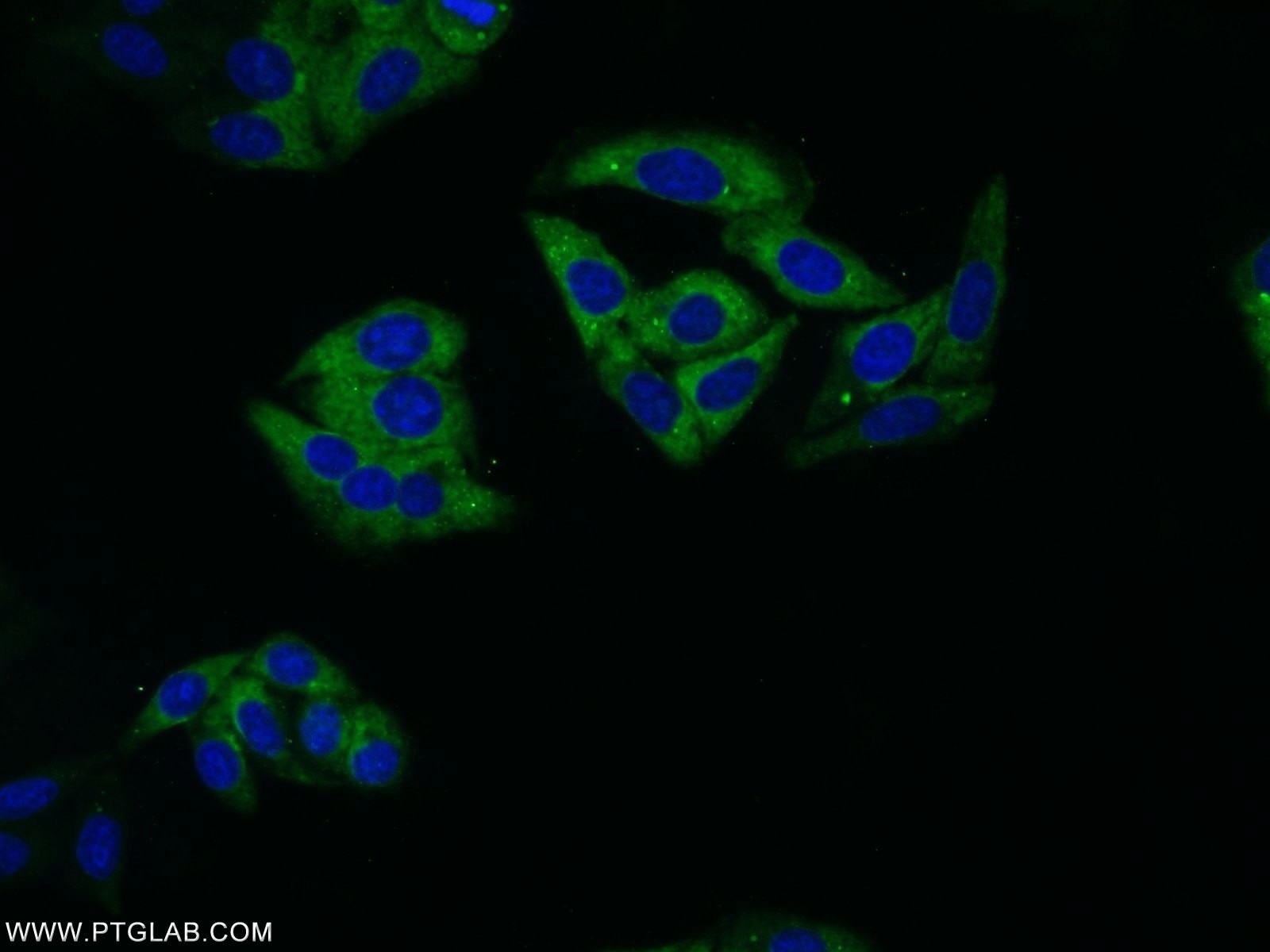14-3-3 Monoklonaler Antikörper
14-3-3 Monoklonal Antikörper für WB, IHC, IF/ICC, IP, ELISA
Wirt / Isotyp
Maus / IgG1
Getestete Reaktivität
Hausschwein, human, Maus, Ratte
Anwendung
WB, IHC, IF/ICC, IP, CoIP, ELISA
Konjugation
Unkonjugiert
CloneNo.
2E10A3
Kat-Nr. : 66061-1-Ig
Synonyme
Geprüfte Anwendungen
| Erfolgreiche Detektion in WB | HEK-293-Zellen, HeLa-Zellen, HepG2-Zellen, humanes Hirngewebe, Maushirngewebe, Hausschwein-Hirngewebe, Rattenhirngewebe |
| Erfolgreiche IP | Rattenhirngewebe |
| Erfolgreiche Detektion in IHC | humanes Lungenkarzinomgewebe, Rattenhirngewebe Hinweis: Antigendemaskierung mit TE-Puffer pH 9,0 empfohlen. (*) Wahlweise kann die Antigendemaskierung auch mit Citratpuffer pH 6,0 erfolgen. |
| Erfolgreiche Detektion in IF/ICC | HepG2-Zellen |
Empfohlene Verdünnung
| Anwendung | Verdünnung |
|---|---|
| Western Blot (WB) | WB : 1:2000-1:20000 |
| Immunpräzipitation (IP) | IP : 0.5-4.0 ug for 1.0-3.0 mg of total protein lysate |
| Immunhistochemie (IHC) | IHC : 1:50-1:500 |
| Immunfluoreszenz (IF)/ICC | IF/ICC : 1:20-1:200 |
| It is recommended that this reagent should be titrated in each testing system to obtain optimal results. | |
| Sample-dependent, check data in validation data gallery | |
Veröffentlichte Anwendungen
| WB | See 3 publications below |
| IHC | See 1 publications below |
| IF | See 1 publications below |
| IP | See 1 publications below |
| CoIP | See 1 publications below |
Produktinformation
66061-1-Ig bindet in WB, IHC, IF/ICC, IP, CoIP, ELISA 14-3-3 und zeigt Reaktivität mit Hausschwein, human, Maus, Ratten
| Getestete Reaktivität | Hausschwein, human, Maus, Ratte |
| In Publikationen genannte Reaktivität | human, Hausschwein, Maus, Ratte |
| Wirt / Isotyp | Maus / IgG1 |
| Klonalität | Monoklonal |
| Typ | Antikörper |
| Immunogen | 14-3-3 fusion protein Ag6055 |
| Vollständiger Name | tyrosine 3-monooxygenase/tryptophan 5-monooxygenase activation protein, theta polypeptide |
| Berechnetes Molekulargewicht | 28 kDa |
| Beobachtetes Molekulargewicht | 31 kDa, 28 kDa |
| GenBank-Zugangsnummer | BC056867 |
| Gene symbol | 14-3-3 theta |
| Gene ID (NCBI) | 10971 |
| Konjugation | Unkonjugiert |
| Form | Liquid |
| Reinigungsmethode | Protein-G-Reinigung |
| Lagerungspuffer | PBS with 0.02% sodium azide and 50% glycerol |
| Lagerungsbedingungen | Bei -20°C lagern. Nach dem Versand ein Jahr lang stabil Aliquotieren ist bei -20oC Lagerung nicht notwendig. 20ul Größen enthalten 0,1% BSA. |
Hintergrundinformationen
14-3-3 proteins interact with a wide spectrum of proteins and possess diverse functions. Mammals express seven distinct 14-3-3 isoforms (gamma, epsilon, beta, zeta, sigma, theta, tau) that form multiple homo- and hetero- dimmers. 14-3-3 proteins display the highest expression levels in the brain, and have been implicated in several neurodegenerative diseases, including Alzheimer's disease and amyotrophic lateral sclerosis.
Protokolle
| PRODUKTSPEZIFISCHE PROTOKOLLE | |
|---|---|
| WB protocol for 14-3-3 antibody 66061-1-Ig | Protokoll herunterladen |
| IHC protocol for 14-3-3 antibody 66061-1-Ig | Protokoll herunterladenl |
| IF protocol for 14-3-3 antibody 66061-1-Ig | Protokoll herunterladen |
| IP protocol for 14-3-3 antibody 66061-1-Ig | Protokoll herunterladen |
| STANDARD-PROTOKOLLE | |
|---|---|
| Klicken Sie hier, um unsere Standardprotokolle anzuzeigen |
Publikationen
| Species | Application | Title |
|---|---|---|
Aging (Albany NY) In vitro and in vivo efficacy of the novel oral proteasome inhibitor NNU546 in multiple myeloma. | ||
Neurosci Res HAP1 interacts with 14-3-3 to regulate epileptic seizure via GABAAR-mediated inhibitory synaptic transmission in pentylenetetrazole rat model. | ||
Clin Nutr Ceramide enhanced the hepatic glucagon response through regulation of CREB activity | ||
J Virol The African swine fever virus MGF360-16R protein functions as a mitochondrial-dependent apoptosis inducer by competing with BAX to bind to the HSP60 protein |
